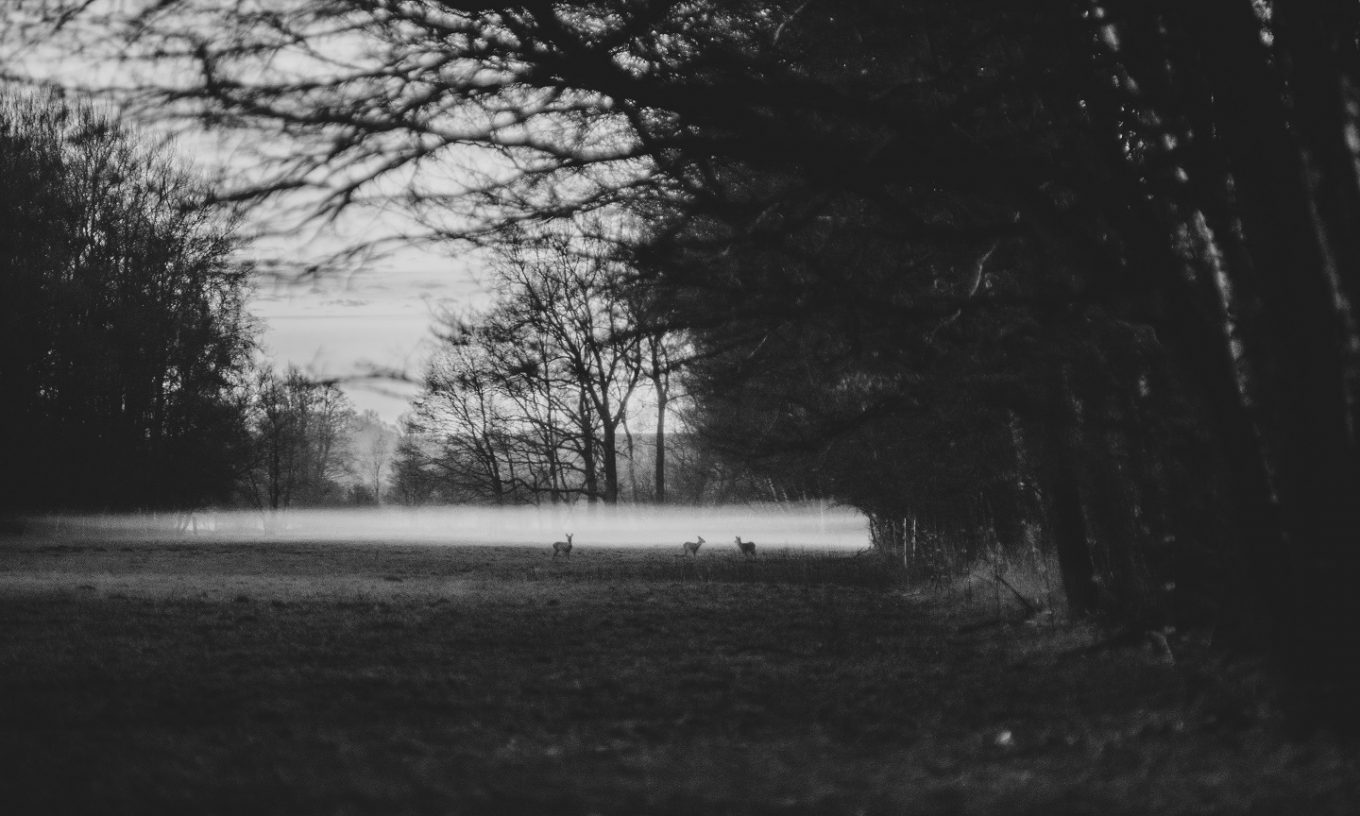Witness
I put myself in the place of John Cleaveland,
whose art I’ve seen online, oil on panel: wheat and
water, field and stone and shifting cloud. A tree line,
say, divides new grass and faded ground from bright,
expansive sky; but darker greens and blues conjoin
shadows, leaves and sky much as a tree itself
digs deep in earth and yet releases spent breaths
heavenward. My friend posts her photo
of Cleaveland’s studio—
the screens, paints, applicators
used to render images both more and less
than real. It isn’t essence captured here—for who
can tell what the essence of a shadow is?—
but light on molecules infused with vision deep enough
to get to the heart not so much of things
as of itself, inviting the viewer in. But is there, then,
an end to art if no one attends? If a tree falls in the woods,
or I write a poem about a fallen tree and no one
reads, is the falling any less? Trees, after all, fall every day,
soundless except to SARS-infected deer that might
be better off without humankind to watch
as they twist their stalky necks
and prepare to run.
***
Natural History
(After Reading Lewis and Clark’s Journal)
Drawn by simple curiosity, wild creatures at the forest’s edge
witnessed the unusual ascension of men from the river once
the longboat spun its prow and scraped its keel across the stones.
They were not deer, such as the men had known in Virginia or
Vermont, but antelope whose haunches flashed when the heave
of portage brought the men too near. The men believed
they were something they needed to kill, not just for food
or for the pleasure of pursuit, but from a need to supplement,
with drawings of anatomy and habitat, the mapping of a
northwest passage to the sea. They lusted after elk and buffalo
even as they sought the source of America’s great vein,
kissing the ground along the Great Divide and expecting a
falling vision on the other side of the hill (though met, in fact,
with rough terrain, they vowed they’d yet outwit the Spanish king
in spite of tier upon tier of peak and precipice, of winter closing in).
One of them, it’s said, went crazy with despair. Only loyalty
made the pieces of himself cohere: notations in his book, diagrams
of les petits chiens and thoughts on how to flood their holes
and capture one alive to send to Jefferson. Perhaps, that night at
Grinder’s Stand, when the “sweet evening” failed to soothe his soul,
Lewis thought of Oregon and the blank Pacific whose horizon
he had scanned for cargo ships that did not come. Perhaps
he’d known all winter long but had watched anyway,
carving his name in the trunks of trees and feeling the dread
of home: the blind spring rising on the mountainside,
the melt’s uncovering of bones. Protracted rest
in settled country, cleared of every darkness but his own.
Photo by lost design on Unsplash





